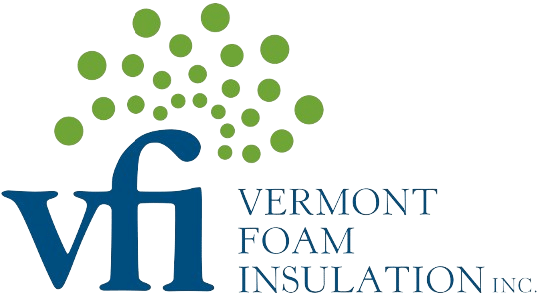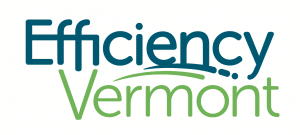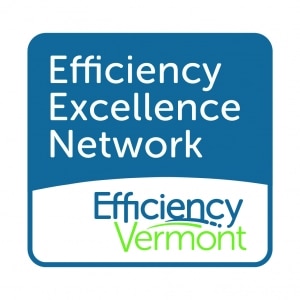Spray foam insulation has become well-known throughout Vermont as an energy-efficient and airtight insulation for homes. However, like with any construction process, the key to maximizing its benefits lies in getting a professional installation done. Being spray foam and insulation experts, we’re frequently asked about the proper conditions and measures needed when considering a spray foam application.
In the New England climate especially, moisture is the nemesis of building materials. In 90% of cases, a water or moisture problem is what leads to building failures. In this article, we discuss how to avoid these issues.
Spray Foam 101: Get Rid of Moisture First!
If too much moisture finds its way into the walls, ceilings, or roofs and is trapped by improper insulation, it becomes a breeding ground for mold, mildew, and rot. This not only poses health risks to those breathing the air in the home but also a risk to the structural integrity of the home itself. That’s why we first assess your home and make sure there are no existing moisture issues that could lead to other problems later down the road.
Rectifying sources of moisture cannot be stressed enough before embarking on a residential spray foam insulation project, because installing spray foam will greatly increase the airtight seal where it is installed. While spray foam insulation itself will never add moisture to a space, proper measures should be taken to address the sources of moisture in a home that could lead to mold before spray foam is installed.
Remediation and Ventilation
Before considering spray foam insulation, it’s imperative to have a professional, like Vermont Foam Insulation, conduct a thorough inspection of the property to observe potential sources of moisture. This includes sometimes testing moisture levels in building materials, but mostly simply looking for obvious sources of moisture, such as open exposed earthen material, leaking or unwaterproofed foundations, fieldstone foundations, poor exterior grading, etc. All of these are red flags that should be addressed beforehand or alongside a spray foam application. In addition to addressing these issues, ensuring proper ventilation should accompany moisture mitigation measures as a multipronged long-term solution. Adequate ventilation is critical in the control of moisture, minimizing the risk of subsequent damage and ensuring a steady supply of fresh air.
Proper Ventilation Equipment
For the long term health and durability of a home and its occupants, it should have a good system of ventilation. This will health keep the air fresh for its occupants and dry for the building assembly. Household ventilation comes in a number of forms and levels of sophistication. Ranging from simple exhaust-only appliances, like bath fans and range hoods, to complex, whole-house, balanced ventilation systems. There are national standards, guidelines, and codes that dictate minimum standards for ventilation.
As part of the work done by Vermont Foam, we often suggest measures that should be considered to increase ventilation or rectify unlying issues with household ventilation. For instance, it is all too often that we find bathroom exhaust fans that dump hot, moisture-laden air into an unconditioned attic. As part of our recommendations and work scope, Vermont Foam may add duct work and make sure the bath fan vents correctly to the outside. Vermont Foam Insulation may also recommend a separate contractor be contacted for the consideration of a more complex ventilation system, like a heat recovery ventilator (HRV), for example.
Spray Foam Is Safe – When Installed Correctly!
When your spray foam installation is entrusted to experienced installers like the industry experts on staff here at Vermont Foam Insulation, the only thing you have to worry about after the trucks leave the driveway is what you are going to do first in your comfortable and energy-efficient home. By partnering with an experienced and trusted contractor like Vermont Foam Insulation, you’re not only investing in a comfortable and energy-efficient home but also ensuring the long-term health and durability of your living space.








